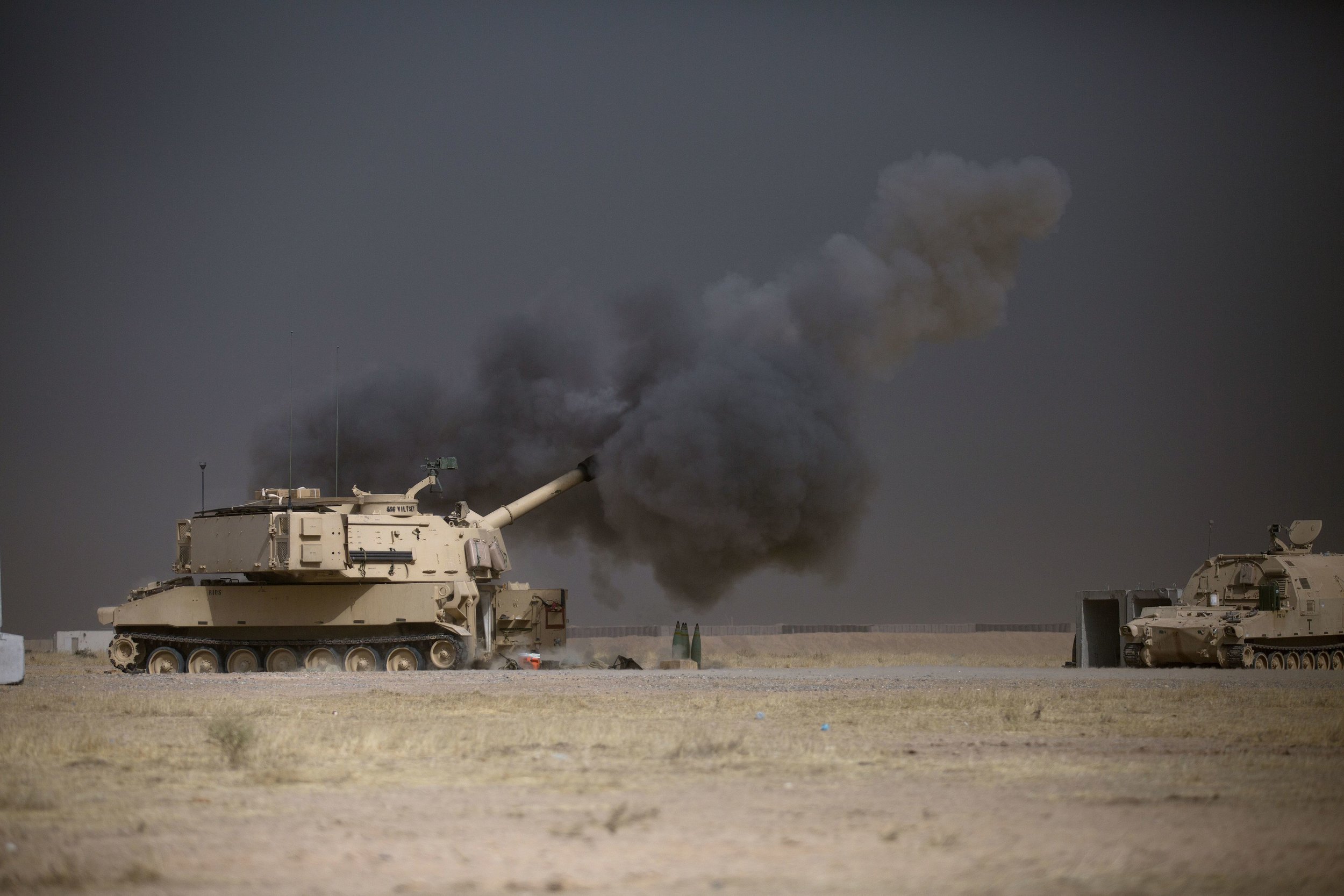Could the Battle for Mosul be the Beginning of the End for ISIS?
BY UPAMANYU LAHIRI

On Wednesday, November 2nd, residents of eastern Mosul in Iraq enjoyed their first day in over two years not under the control of the Islamic State. People welcomed the Iraqi special forces and celebrated by trimming their beards; beards were mandatory under Islamic State rule, giving a glimpse into life under the ‘caliphate.’ A few days earlier, Iraqi forces with American air support launched their final offensive into the ISIS held city of Mosul. The battle, despite early successes, promises to be a long and bloody one with thousands of casualties, including civilians. However, if successful, the operation would be a deadly blow to the Islamic State. Mosul in northern Iraq was one of the first major Iraqi cities to be captured by the group in 2014 and has been at the center of the group’s self-styled ‘caliphate’ and its loss would be a huge blow to its ambitious claims of creating a global pan-Islamic caliphate based out of the Middle East. Its loss would most likely mean that ISIS will be left fighting a losing war of attrition with the Iraqi and Syrian forces until it loses all its territory.
This year has certainly been a bad one for the Islamic State. It has lost about half of the territory it once controlled in Iraq and a quarter of its land in neighboring Syria. Its finances are also shrinking as are its once plentiful supply of foreign fighters who are also suffering from low morale in the face of mounting losses. But this does not necessarily mean the end of the road for Abu Bakr al-Baghdadi, the Iraqi born head of ISIS or his organization. ISIS would likely transform into a guerrilla insurgent group dependent on local safe havens and sustain itself through low level criminal activity like other insurgent groups around the world.
However, given that its original goal of establishing a global caliphate was obviously never a realistic goal to begin with, how much of a victory is this really? Additionally, we could see increased risks of terrorist attacks on Western cities in retaliation. We have already witnessed this with the attacks in Paris and many other cities, most likely in response to the Islamic State’s mounting losses. Such attacks, not just on the West but also across the Middle East, may only increase if ISIS is transformed into a full-fledged guerrilla terrorist group.
The way to finish off ISIS for good and prevent it from becoming like the Taliban or al-Shabab, who each regrouped in safe havens in Pakistan and southern Somalia respectively after they were defeated militarily, should involve a two-part strategy. The first is to defeat them militarily which we seem to be on course to doing albeit in a slow, grueling and bloody war of attrition. The second part is to deny them safe havens and sanctuaries from which to regroup and operate once they are defeated. However, success on this front is far less certain. Insurgent groups worldwide find sanctuaries not just through violence and intimidation but also by successfully leveraging local political grievances. If there is one resource apart from oil in plentiful supply across the Middle East, it is political grievance and ISIS often capitalizes on this sentiment. In Iraq, one of the reasons for the success of ISIS was Sunni Arab resentment towards the Shiite dominated, post-Saddam government led by Nouri al-Maliki. Beginning around 2010, Maliki began consolidating his hold on power by replacing Sunni and Kurdish military officers with sycophantic Shiite officers loyal to him. He used the courts and security forces to go after Sunni politicians and security forces violently clamped down on Sunni Arab protesters while Maliki aligned more closely with Shia-powerhouse Iran. This alienation of Sunnis continued under Maliki’s successor Haider al-Abadi. In fact, such was the disenchantment that many Sunnis in Mosul even welcomed the ISIS militants when they took over the city in 2014.
Even with the operation to recapture Mosul, which represents a chance for the Government to reach out to the city’s embattled Sunnis, there are causes for concern. Shiite militia groups announced that they had joined the operation to recapture Mosul, a mostly Sunni city. The militia leaders have agreed not to enter the city of Mosul itself for now but their involvement itself risks whipping up sectarian tensions with revenge killings in what is already a sectarian inferno. Additionally, Iraqi military commanders acknowledge that despite overwhelming outward signs of the Mosul population welcoming the special forces as liberators, there remains a degree of support for the Islamic State.
Unless Sunni Arab alienation and disenfranchisement is adequately addressed, the opportunity will remain for ISIS to effectively leverage these grievances and regroup in safe havens with the help of the local populations.
